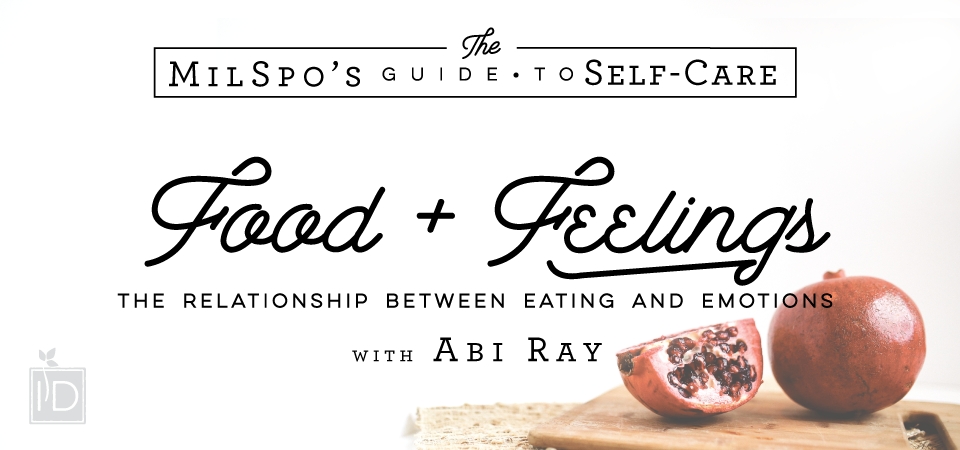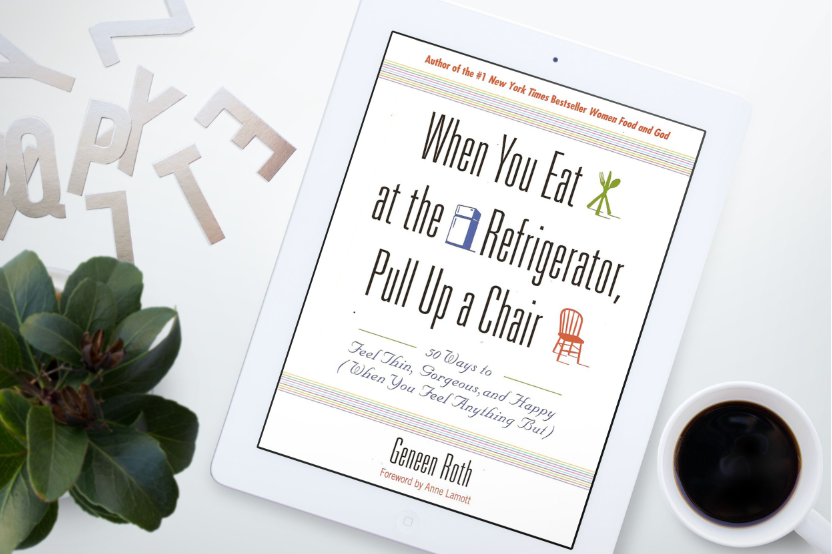Food + Feelings: The Relationship Between Eating and Emotions | The MilSpo's Guide to Self-Care
We all know that person. The one obsessively counting calories to look good for their spouse’s return home. Or, the one binge eating pizza pockets out of convenience and loneliness. Confession — I’ve been there. Maybe you have too.
So what is the deal with food and emotions, anyway?
Let me start by telling you a little about myself. Hi, I’m Abi, a certified counselor of eight years, helping individuals personally, professionally, and with relationships. Plus, I’m an Army spouse!
My preoccupation with food started at an early age. Stepping on the scale almost twice daily, it was hard for me to comprehend that dropping 5 to 10 pounds so easily meant it would be just as easy, if not easier, to gain it back. That is, until I began to understand the relationship between food and feelings.Both historically and in modern day, food has held a huge role in society. Food not only provides nourishment but also facilitates family, friend, and community interaction. Humans, across the world, have developed food rituals far beyond sustainability, and even have unspoken rules about when, how, and what to eat. These routines are generally passed on from generation to generation. Additionally, humans use food as a form of comfort — established as early as infancy — so it’s not uncommon for individuals to use eating as a form of coping late into adulthood.The connection between emotions and eating fascinates me. I’ve spent several years studying this relationship and am excited to share my finding with you.
During April’s MilSpo’s Guide to Self-Care, I’ll teach you how to identify the four components of emotional eating and how they rotate in a circular motion (thoughts, emotions, behaviors, biology). Furthermore, we will …
- Identify the 10 common self-defeating thought patterns that often play a role in emotional eating, so these patterns can be interrupted.
- Discuss the eight basic emotions and how to build a tolerance.
- Learn about the neurological and digestive role, while identifying the six basic emotional food cravings and what they can tell us.
- Explore alternative methods for stress management.
Life in general is complicated. Add stressors unique to military life and it can feel like a never-ending roller coaster of emotion. Let me teach you how to better manage these emotions so you can live the healthful life you want and deserve.
My Book Recommendation:
When You Eat at the Refrigerator, Pull up a Chair by Geneen Roth.
(Purchase using the links above will help InDependent cover administrative costs for this program at no extra cost to you!)
Group Coaching Session:
Wednesday, April 20, 2016 via Google Hangouts on Air at 8 p.m. EST. An email reminder will go out to all registrants Sunday, March 17.
Space will be limited. First come, first served. The session will be recorded and emailed to those who register to attend.
Peer-to-Peer Discussion and Meet-up:
Join the conversation in the InDependent | Virtual private Facebook group. Here we will spark conversations, and share online and local resources. Plus, each local community group will host an in-person gathering at the end of the month where you’ll have an opportunity to meet like-minded spouses.



